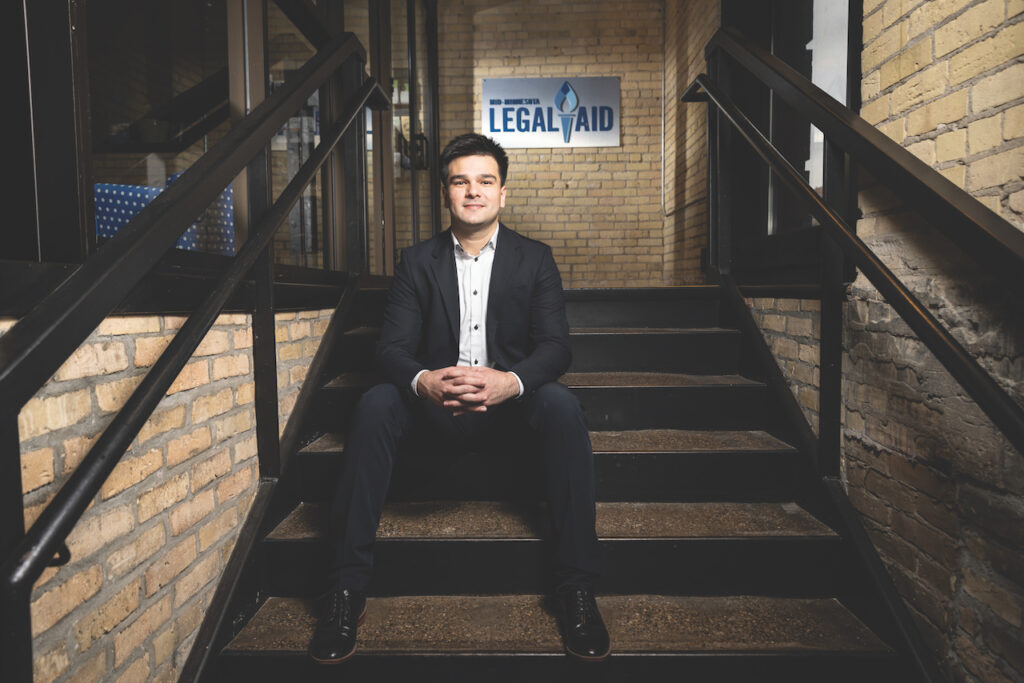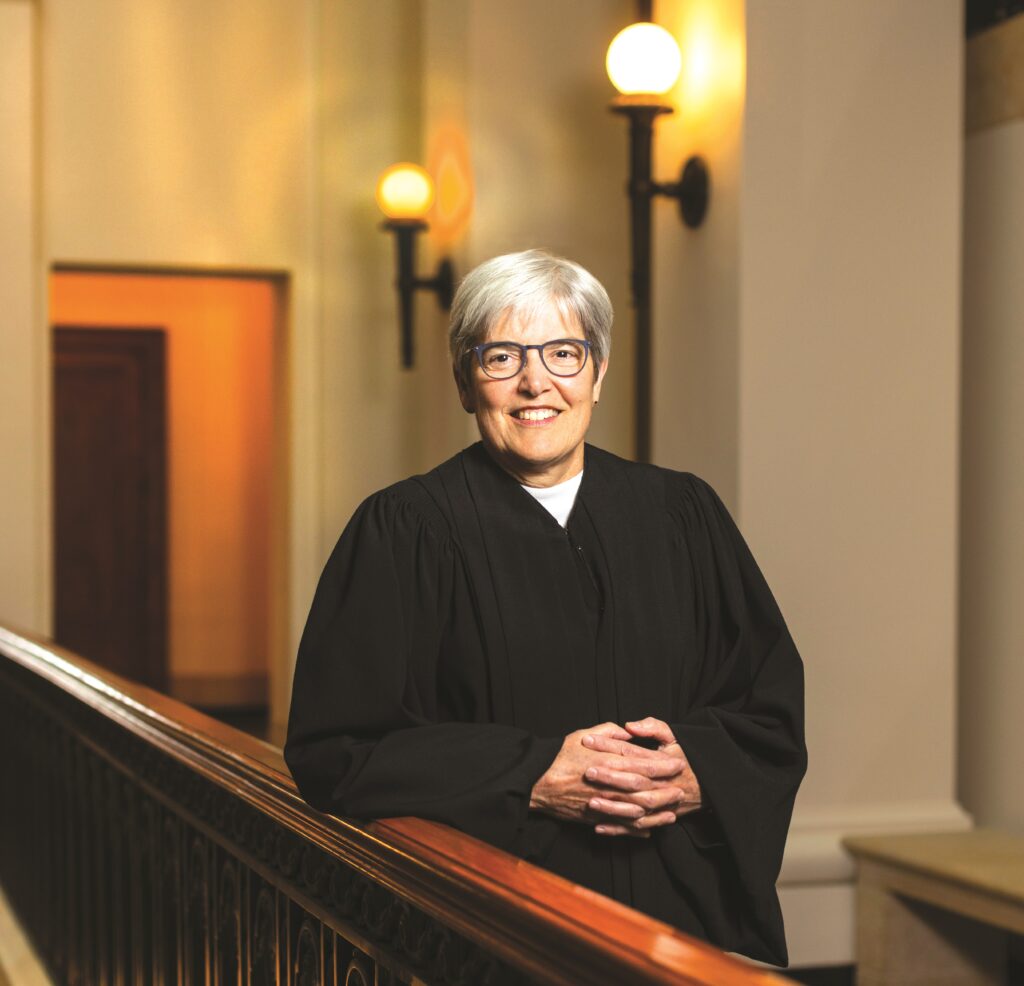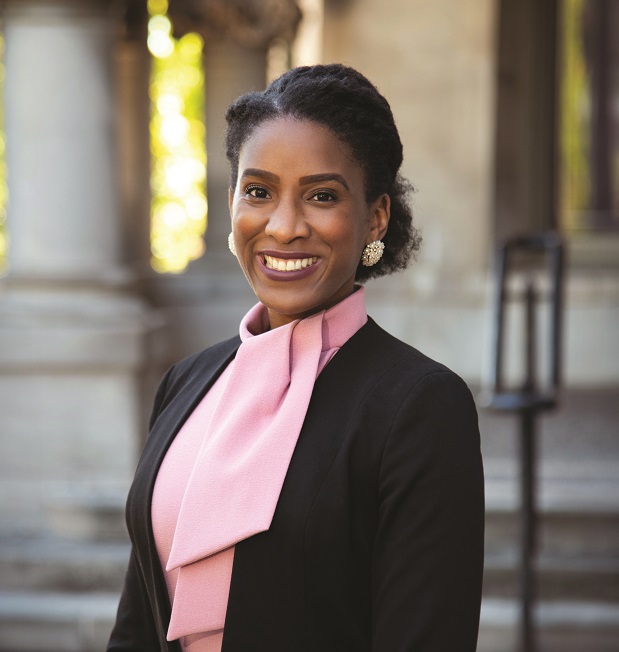If you didn’t know any better, Maya Karrow ’21 J.D. might come off as a private investigator. And that assumption would be partially correct. She’s certainly on the ultimate search for answers.
Karrow is convincing in her investigator ways; last year she spent countless hours in the bowels of county courthouses across Minnesota. She sent dozens of letters requesting case files from county clerks. And she scoured the internet, earmarking media reports and taking copious notes.
Despite outward appearances, Karrow is not a private eye. But she does have a long list of clients who are dear to her heart – 88 of them in fact, all who deserve justice even though their cases are closed and their voices silenced.
“My clients are children, and even though I’m not actually speaking to these kids, or actually hearing from them, I am advocating for them,” Karrow said. “I have a lot of passion for giving a voice to people who are voiceless.”
Karrow is a recent School of Law graduate and was part of the school’s Archbishop Ireland Justice Fellowship program. Fellows are placed in one-year, full-time employment with Minnesota organizations that work to address the civil legal needs of individuals who otherwise could not afford assistance from an attorney.
In Karrow’s case, she took on a placement as staff attorney with Safe Passage for Children of Minnesota, one of the leading child welfare organizations in the state. For several months, Karrow collected data on 88 child fatality cases connected to Minnesota’s child protection system.
“Their stories were completely pushed under the rug,” Karrow said. “No one is bringing their stories to light, and we’re not going to see any change if someone isn’t pointing out these issues.”
The 88 cases in question span eight years, from 2014 to 2022. Many feature what Karrow describes as “alarming and disturbing trends,” where a little extra care or concern from the state may have saved the child’s life.
Karrow considered a multitude of factors, such as how many times reports of abuse or neglect were made, how many times the family was investigated, and what did the state know about the case before the child died. In the end, she wants to know what could have prevented the death, all in an effort to avoid future tragedy.
“It’s almost like I am a kind of investigator, in a way, and I am just poking holes in a lot of these cases or asking a lot of questions. What happened here and why?” Karrow said.
With the research portion of the project complete, a massive report was painstakingly compiled in collaboration with Richard Gehrman, executive director of Safe Passage for Children of Minnesota. The goal is to present the findings to the Minnesota State Legislature, with a series of recommendations and steps lawmakers could take to improve our state’s child protection system.
“Our findings are pretty incredible – in a really alarming way. The average person has no idea how bad our child protection system actually is,” Karrow said. “Through this work I feel like I’m bringing justice to the children that died, and their families.”
Closing the justice gap in the U.S. is exactly what the Archbishop Ireland Justice Fellowship program is designed to do. Started in 2014, the program has placed 17 St. Thomas Law alumni in positions with legal aid organizations. Whether they work on immigration or disability law, the goal is the same for each fellow: bringing justice to those who would otherwise go unheard.
Lisa Montpetit Brabbit, associate dean for external relations at the University of St. Thomas School of Law, is one of the cofounders of the program. She says it grew out of St. Thomas looking to do its part in addressing a mammoth issue, helping legal aid organizations that are underfunded and, in turn, the 60 million Americans who can’t afford an attorney.
“Thirty-eight percent of low-income Americans are faced with life-altering legal issues that negatively impact their physical and emotional well-being, safety and sense of dignity,” Brabbit said. “And as we thought about what it means to be a Catholic law school, we asked ourselves, ‘How are we addressing the justice gap?’ This seemed to be one positive way to contribute to that.”
For many of the fellows, a one-year commitment has quickly turned into a permanent path forward. Sixty percent of placements have led to the fellow accepting a full-time position with their aid organization.
“It has been inspiring to watch these attorneys get into the work and find a strong return on their life energy,” Brabbit said. “They’re realizing that their gifts are meeting a serious social need, and in addition to helping clients, the work is bringing meaning to them personally.”

One of those fellows who is far from ready to say goodbye to that meaningful work is Paulo Castro ’21 J.D. Originally from Brazil, Castro came to the University of St. Thomas School of Law looking to expand his horizons in the U.S. He quickly found much more than he bargained for.
“I had a wish of spending a year here just to see how it feels,” Castro said. “And now my wish is to keep doing my work here. I’ve realized how valuable I can be.”
A staff attorney at the Minnesota Disability Law Center, Castro is part of the youth services team. His fellowship ended last fall, but he received a full-time employment offer to stay and continue his work at the Disability Law Center.
Castro focuses on cases involving special education students whose families run into roadblocks trying to access services across the state. He fields dozens of phone calls weekly from parents and caregivers, all hoping he’ll be able to unlock a pathway for their child to receive a better education.
“Education changed my family’s life – I know how seriously education should be taken,” Castro said. “For my clients, it can change their lives, too, if they receive the appropriate services.”
Often Castro works quickly with schools to establish those services for his clients. But he’s prepared to go to court if barriers remain.
“They must be taken seriously and not discriminated against or segregated in the classroom,” Castro said. “Many parents just need someone to listen to them and point them in the right direction, but we can offer much more than that.”
The Minnesota Disability Law Center is zeroed in on clients who cannot afford a private attorney. Creating access motivates Castro to keep fighting for each new client who walks through the door.
“Most of our clients are the ones who are the least favored in the community,” Castro said. “So, this is something I feel happy about, because I love to get to talk to people who are in need of legal advice, and to help them find a solution.”
With each passing year, the Archbishop Ireland Justice Fellowship continues to grow. Six fellows received placements this past year, with leaders hoping to grow their numbers to 10 each year for the next decade.
“We just don’t have enough lawyers to meet all of these needs,” Brabbit said. “Sometimes we hear there’s too many lawyers in the profession … well, actually there’s not enough lawyers doing this kind of work.”
Despite that massive gap, St. Thomas is working to fill it, one lawyer at a time. As Maya Karrow comes to the end of her fellowship at Safe Passage, she’s not only working on a report for the Minnesota Legislature, but she’s also getting ready to pursue a career tackling more tough cases for families.
“I just see it as a huge important piece of work that I got to be a part of,” Karrow said. “I’m so happy I got the opportunity to do this work.”
This story is featured in the spring 2023 issue of St. Thomas Lawyer.







